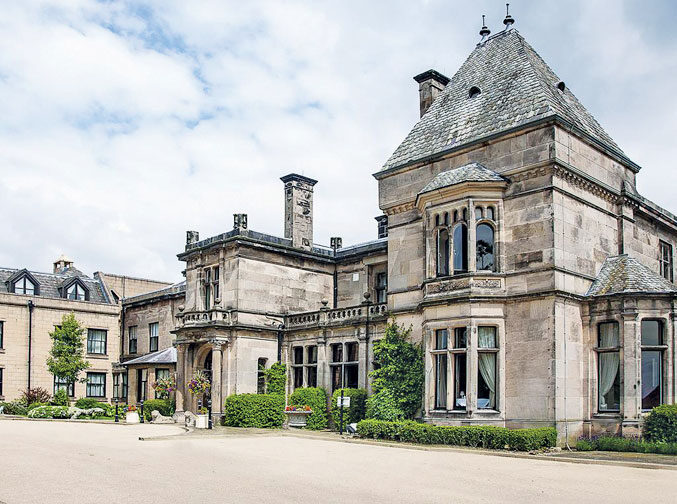DAVID AND Victoria Beckham were blissfully unaware of the sordid past of Rookery Hall, the magnificent country house in Cheshire they chose back in 1997 as the place to announce to the world they were engaged.
When they read this article they will wish they had known what we all should know, that many of the great mansions in Britain were built on the backs of enslaved Africans. Rookery Hall was built in 1816 when Britain and some Britons were still being enriched by the labour of enslaved Africans in the Caribbean. It was initially known as The Rookery, Worleston, and was the home of a wealthy local landowner William Hilton Cooke.
As well as the 500 acres he owned in Britain, his name can be found on the 1811 register of land ownership of Jamaica, after his uncle, John Hilton, bequeathed him the sugar plantation of Chester Castle in the parish of Hanover in the north-west of the island.
The plantation with its human chattel of 217 enslaved people had been in the hands of John Hilton since at least 1799. The family had lived in Jamaica since 1773. In James Robertson’s 1804 map of Jamaica, Chester Castle is plotted as a sugar estate with a cattle mill.
John Hilton exploited his enslaved people to enrich himself in many ways. When he died in 1810, his last will and testament included a behest of £200 for his “mulatto son”, John Hilton and £20 currency to his “quadroon daughter”, Mary Hilton and £10 to his “mulatto daughter”, also called Mary Hilton.
Paltry
These were paltry inheritances compared to the £2,000 he left his niece Hannah Hilton and further legacies of £3,000 and £1,000 he left to other relatives. Though he treated his white relatives, who were not direct descendants, better than he treated his own son and daughters of mixed heritage, John Hilton treated his enslaved charges the worst. They were bequeathed nothing in his will. Not one penny for their labour in making him an extremely wealthy man.
Worse still, they were simply handed over, lock stock and barrel when the time came for the estate to be passed on to John Hilton’s nephew. The plantations enslaved workers were now the ‘property’ of William Hilton Cooke who quickly saw their value in making him an even greater fortune. By 1810 when William Hilton Cooke inherited the plantation, there were 318 enslaved people labouring seven days a week to make him rich.
In today’s terms, even at conservative labour estimates, he would have been earning £7.5 million extra every year by not paying his workers. William Hilton Cooke would be even wealthier on the abolition of slavery in 1833 when he and his fellow slave owners were richly compensated by parliament for each and every enslaved person on their ledger.
At that time, Cooke was able to claim for 264 people that he was forced to release from bondage. In 1867, Rookery Hall was sold together with the park, farms and greenhouses. It was sold again in 1947.
The Hilton Cookes may not own the Rookery any longer, but back in Jamaica their legacy is still in evidence at the Chester Castle plantation. As recently as 2007, author Ian Thomson visited a 96-year-old white planter known locally as ‘Squire Cooke’ who lived reclusively on the estate in a West Indian merchant’s house from the 1700s. Many generations of the family remain buried in the home’s grounds today.


Comments Form
2 Comments
Thank you for this. The more I read the more I understand, it all runs so deeply. It’s getting to a point where I am seeing opulence and elitism for what it really is, exploitation. They would have nothing without slavery and they don’t want us to see it.
This is quite interesting as I lived and grew up in the original house built for the son of the owner of Rookery Hall just a field away, we had an identical staircase as Rookery Hall and many of the same features.